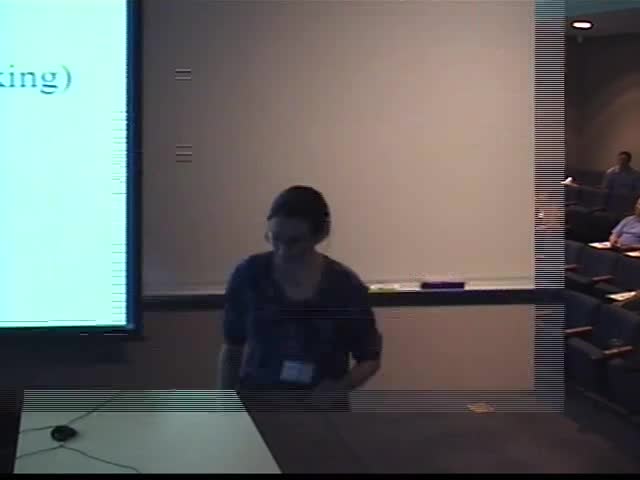Using the Crowd for User-Centered Predictive Modeling
Presenter
May 10, 2012
Keywords:
- Algorithms; functional approximation
MSC:
- 65D15
Abstract
I will describe work on three areas related to crowd-based user-centered modeling:
1) Growing Lists:
We want to combining the knowledge of many people (experts) in order to create "sets" of things that go together, starting from a small seed. The experts have varying levels of expertise. This is the same problem that Google Sets was designed to solve. (With Ben Letham and Katherine Heller)
2) Sequential Event Prediction for Personalized Recommendations:
We are given a "sequence database" of past event sequences to learn from (like sequences of products purchased by customers), and we aim to predict the next event within a current event sequence (the next product purchased). We focus on applications where the set of the past events has predictive power and not the specific order of those past events. This is useful for all different kinds of recommender systems and search engines. (With Ben Letham and David Madigan)
3) Approximating the Crowd on a Budget:
The problem of "approximating the crowd" is that of estimating the crowd's majority opinion by querying only a subset of it. Algorithms that approximate the crowd can intelligently stretch a limited budget for a crowdsourcing task, and must balance between exploring the quality of the labelers and exploiting the best ones. (With Seyda Ertekin and Haym Hirsh)
